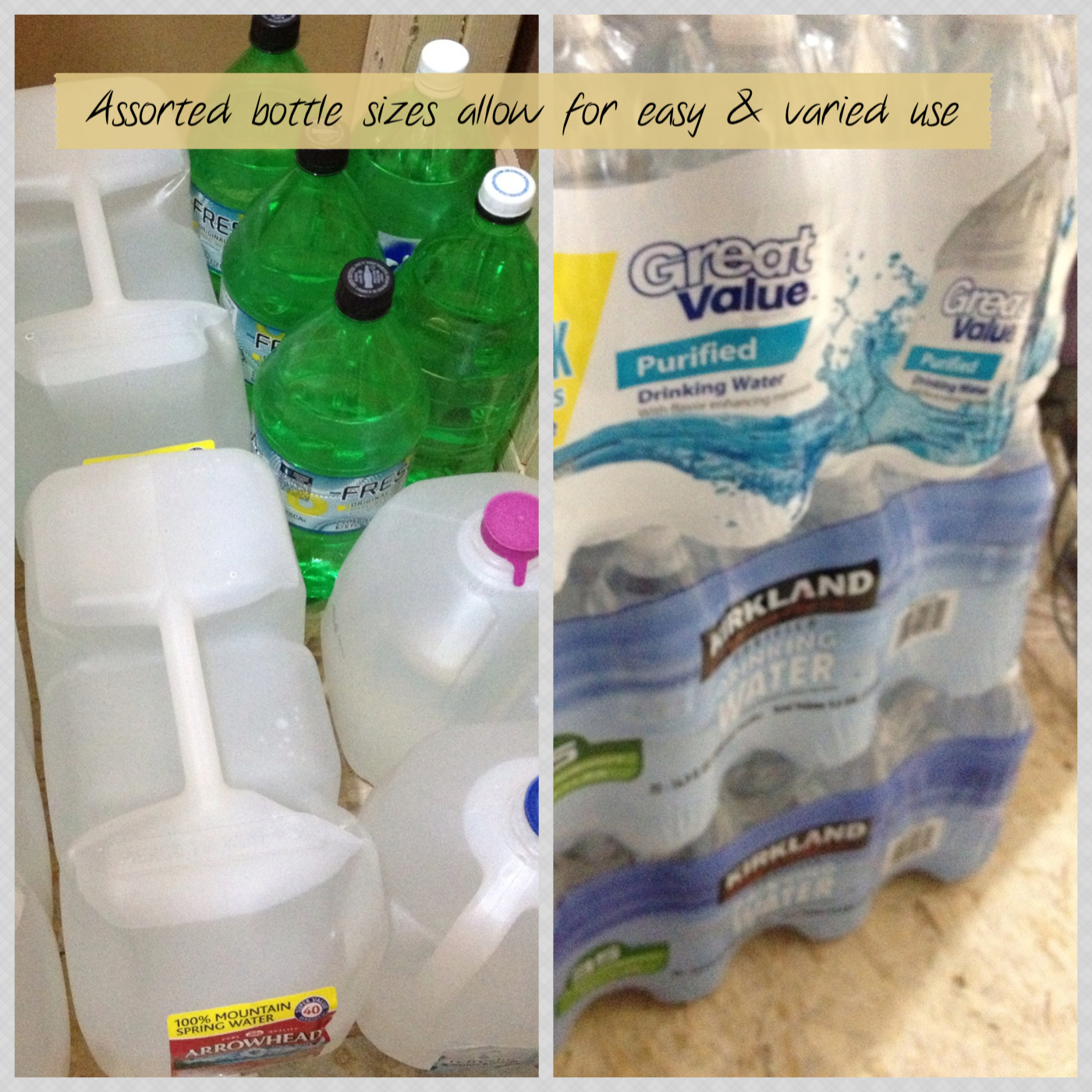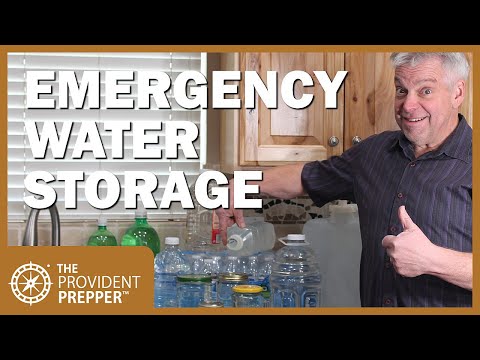A water emergency is when there are no normal purification processes able to be used to treat your drinking water.
This can occur due to a number of things- either something that broke down the water or too much of an increase in chemicals from contaminated water.
Since our bodies are mostly made up of water, not having enough or ingesting too many contaminants can have disastrous effects!
Symptoms include feeling very sick, vomiting, diarrhea, muscle aches and pain, heavy breathing, fatigue, and sometimes fever.
These symptoms usually come on quickly and then they fade as the body gets rid of the excess fluid it has received.
However, people who may experience more severe symptoms like mentioned before may need medical attention at a hospital.
Fortunately, there are some basic steps you can take to help yourself feel better while waiting for rescue services to arrive and make sure everyone knows what actions to take!

Removing unnecessary fluids is one of the main parts of helping someone recover during this time so if you know anyone who might be experiencing a water emergency, urge them to drink plenty of plain liquids and also try to get them to eat foods that have high nutritional value.
Nutritional values include minerals such as sodium, potassium, magnesium, and calcium.
What is a water crisis?
A water crisis happens when there is an absolute lack of clean drinking water or people are forced to make difficult choices about how they can survive due to scarcity.
A water crisis can occur anywhere in the world, but it’s very likely that you will experience a water crisis at some point in your life.
There have been many cases where shortages have occurred for no apparent reason. For example, even though most parts of California were experiencing drought conditions, this past winter was one of the state’s wetter winters on record.
Another cause of water crises is natural disaster. When a hurricane, earthquake or typhoon hits, it can destroy local water supplies or knock out infrastructure such as power plants that help supply water.
Some experts say that we are already in a period of chronic water stress. This means that there isn’t enough water available for everyone to use.
What is a water shortage?
A much more common situation is when there are not enough drinking supplies or toilets for everyone to use. This is typically referred to as a water scarcity.
A limited amount of water can be an even bigger problem if it’s very expensive. This is often called a water crisis.
In some parts of the world, we have already been experiencing both!
Water crises occur due to many different factors including natural disasters like floods or earthquakes, man-made catastrophes such as wars or major droughts, and poor water management at local, national and global levels.
This article will talk about what constitutes a water emergency and how you can help prevent or reduce water emergencies in your community.
What is a water ban?

A water ban is when your area is restricted in how much water you are allowed to have. This is typically done during heavy rainfall or drought, when there is a fear that rivers and lakes will run out of water too quickly.
A water ban can be short term (for example, one day) or long term (weeks or months). It depends on what resources your community has and if people agree with the need for the water ban.
Usually, it’s not very pleasant being without running water but most people seem to get into the habit of washing themselves and their children every other day. Many homes also contain a tank full of water where they keep all of their drinking supplies.
What is a water restriction?
A water restriction is when your home or business is limited in how much water you are allowed to use for drinking, bathing, and washing dishes.
Most municipalities impose a water limit during periods of drought to prevent over-usage of water as well as reduce the risk of water loss due to leaky pipes and equipment.
Usually, residents are notified via letter about what services will be restricted and what time frame they’ll last. This is called a “water restrictions alert.”
Water agencies publish their list of recommended levels and times of usage frequently so that people can check them before taking any steps to begin using water.
These recommendations usually only tell people whether or not to run their tap(s) at home, brush their teeth, wash hands, etc., but they don’t say if it’s okay to take a shower or spruce up after work.
That’s where things get tricky because most individuals determine how long and how vigorously they want to wash by how hot their bath or shower gets.
What is a water disaster?
A disaster can be natural or man-made, but what makes it worthy of that label is not only how much damage it does, but also how serious it becomes as time goes on.
A disaster can occur anywhere there’s water — rivers, lakes, oceans, and even household supplies like for example, drinking glasses and towels. It can happen quickly or slowly, violently or quietly, so someone must identify what’t make a difference.
If we know who and/or what caused a water emergency to occur, then we can work to prevent it from happening again by addressing the source of the problem. Also, if we have knowledge about water emergencies, we can do our best to help those affected by a crisis.
This article will go into more detail about what constitutes a water emergency and some examples of potential disasters.
What can you do to prevent a water emergency?
The best way to avoid having an actual water crisis is by being prepared. This includes gathering enough of a supply for your home, work, and health, as well as knowing what to do if a water crisis happens.
A water emergency is something beyond normal running out of drinking water or electricity causing power outages. These are extended situations that require extra help. They also pose serious health risks to those who are exposed to the contaminated water or insufficient clean supplies.
Preparation is essential in preventing water emergencies.
What should you do if there is a water emergency?
There are several different types of emergencies that can be characterized as a water emergency. If you see any of these signs, call 9-1- 1 right away!
The first type of water emergency is a flood. You may have heard about floods before, but what does it mean to you as an individual homeowner or resident?
A lot of times, floods occur due to natural causes like heavy rainfall. However, more often than not, people create their own flooding conditions by breaking rules or regulations.
This could include dumping large amounts of liquid waste in areas where rain runoff is allowed to drain, filling up swimming pools that were closed, or even using illegal means to irrigate plants.
When these things happen, water has to go somewhere, and it usually finds its way into nearby waterways or drains. When this happens, banks begin to overflow which creates a river or stream of water outside of your home.
This is why someone would normally say they “saw a flash flood” when experiencing floods around them. A lot of times, people don’t know what to do so they stand around and wait for help.
Luckily, there are some things you can do to help prevent, reduce, or at least mitigate the effects of a flood in your area. This article will talk about some ways to save money on cleanup costs and how to tell if the water is still too high for proper cleaning.
Will my house be flooded?
While there is no formal definition of what constitutes a water emergency, those who care for our oceans define a “water emergency” as an immediate threat to human health or the aquatic environment.
In some cases, people may refer to floods or hurricanes as a water emergency, but actually only have consequences for land.
This is not the case with a marine water emergency. As you read above, ocean waters contain many important minerals that help make up healthy bones and skin.
These elements are also needed to survive in humans. For this reason, anyone exposed to seawater can suffer significant health impacts, including death.
Luckily, most areas do not experience a true water emergency at this time.
If you cannot find an answer on our website to your question, feel free to message or call us!
